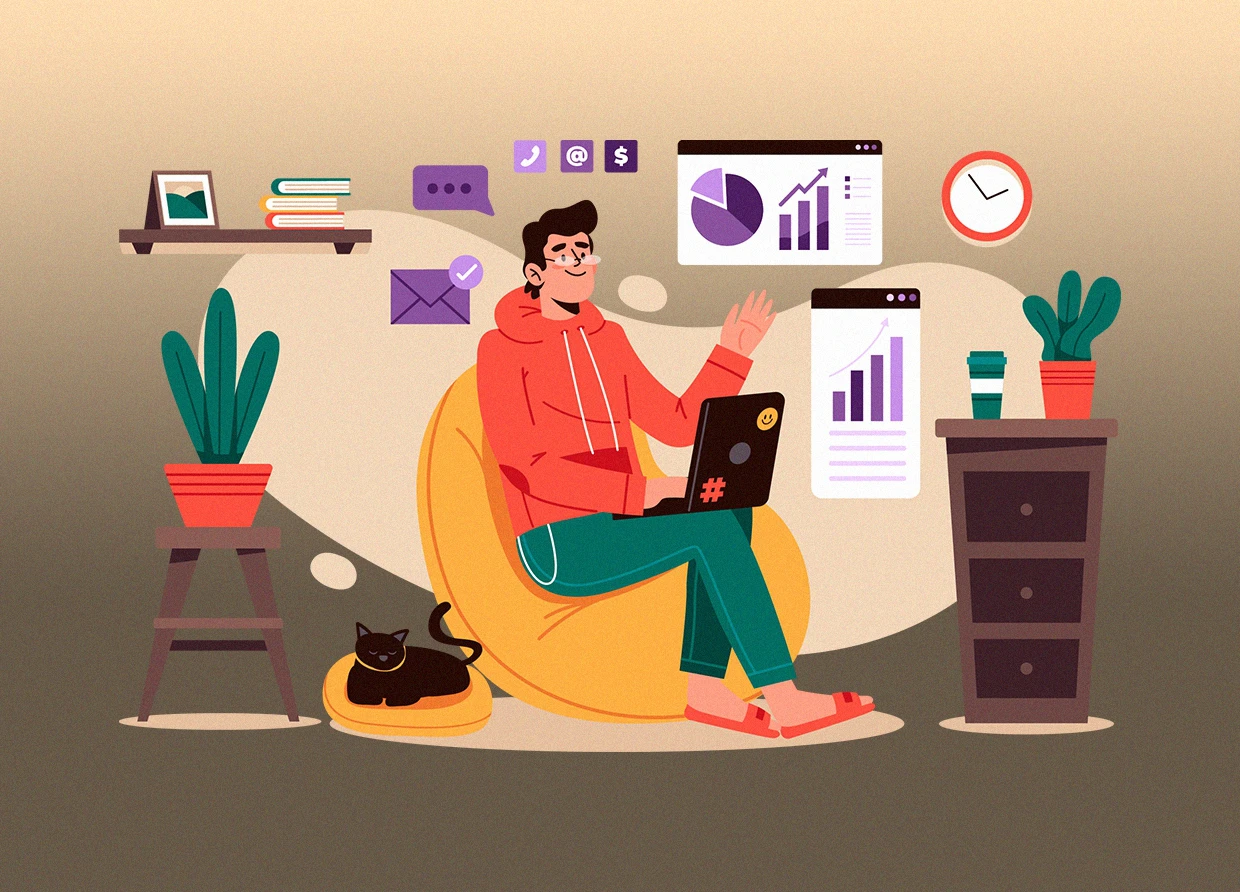SHOULD WE BE WORKING REMOTELY IN THE FUTURE?
Predictions of working remotely at the future.

Whether you like it or not, remote work is here to stay. Work will, in all likelihood, never be equal as it was before. We realize that the way we work will change, but new patterns need adaptation also.
In the middle of distraction and noises, deadlines and virtual meetings keep coming. Sometimes, we like working more than 24 hours and never stop. And tomorrow, the condition is not the same. We just lay on the bed doing some delays.
While some companies rapidly took on remote work during the pandemic, others did it slowly and reluctantly. In the future, businesses will likely have remote working as a critical tool to maintain business continuity. They may offer strong company support for working remotely and a structured work-from-home policy to propel this forward.
Like Caroline (26), a business consultant said that she wouldn’t work remotely forever because sometimes it lets her do another task that she has wanted to do. But on the other hand, it also becomes a distraction that quickly comes when we do remote work.
“For example, when you need to work at 9 a.m., but now you’re working at home. You would feel like, okay, I can wake up nearly at 9 a.m. without getting ready and start working, but sometimes you can give yourself a little excuse ‘let’s start at 11’ etc.,“ she said.
We may understand these changes, but after the pandemic ends, should we still be working remotely? Mc Kinsey accomplishes its research to answer this.
Business services are potential to continue working remotely
Many physical or manual activities and those that require fixed equipment cannot be done remotely. These include providing care, operating machinery, using lab equipment, and processing customer transactions in stores. In contrast, information gathering and processing, communicating with others, teaching and counseling, and coding data can theoretically be done remotely.

Remote work potential is concentrated in a few sectors. Finance and insurance have the highest potential, with three-quarters of time spent on activities that can be done remotely without losing productivity. Management, business services, and information technology have the next highest potential, all with more than half of employee time spent on activities that could effectively be done remotely.
Hybrid working model
A hybrid model that combines some remote work with work-from-office is possible for occupations with high remote work potential. For most workers, some activities during a typical day lend themselves to remote work, while the rest of their tasks require their on-site physical presence. Employees can work remotely between three and five days a week without affecting productivity.

It's in line with what Caroline said, “I’d like to work back in office someday about 2-3 times per week, just to brainstorm, gather with the team.”
In an office-first model, people are expected to be clocked between 9 a.m. and 5 p.m. every workday. In a hybrid work model, employees have more flexibility to get work done when they’re most productive. For example, some people work best early in the morning while others do better in the evening. They can also choose to work with teammates on-site or do heads-down work from a remote location.
Flexibility is a key reason employees are attracted to the hybrid work model. Finding balance is easier in a flexible work arrangement. When employees have more control of their work schedules, they can free up time to take care of the things that crop up in their personal lives—whether running an errand, picking up kids from daycare, or being home for a delivery.
#THE S MEDIA #Media Milenial #working remotely #future #working from home #2021



























